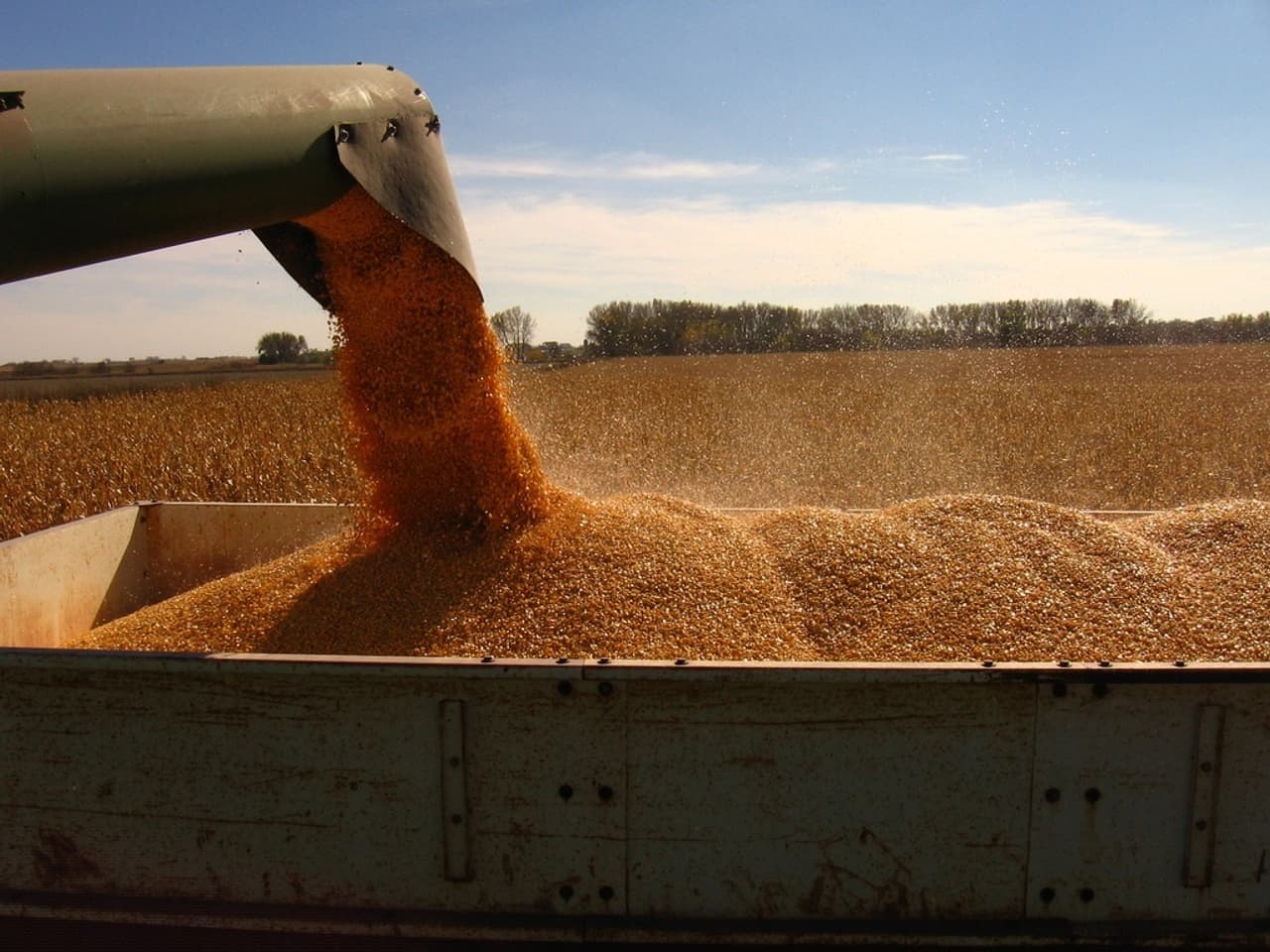
Giant grain firm buys up all British wheat in ‘unprecedented’ purchase
Britain’s most powerful grain company jointly owned by Cargill and Associated British Foods bought and took delivery of all the available UK feed wheat last month.
The series of purchases by Frontier Agriculture, described by a number of traders as ‘unprecedented’, will reignite growing concerns among food manufacturers and campaign groups over the potential for giant trading companies and financiers with deep pockets to profit and even distort commodity markets.
Traders told the Bureau of Investigative Journalism that Frontier bought all available May Futures contracts on the London International Financial Futures and Options Exchange (Liffe) in the period running up to the tender date in the last week of April. Feed wheat sets the benchmark price for wheat used in food.
‘The UK government has turned a blind eye and has aimed to block European proposals for regulating commodity markets that would bring this type of profiteering to a halt.‘
Deborah Doane, World Development Movement
In recent weeks, Frontier is believed to have taken physical delivery of approximately 225,000 tonnes of feed wheat now worth in the region of £40m in what has been described as an attempt to corner the market.
Frontier strongly rejected any suggestion of an attempt to manipulate the market. It did not confirm or deny it made the unusually large trades and refused to reveal its position.
Its trading director, Jon Duffy stated all the wheat contracts it took physical delivery for were made to secure enough grain to fulfill customers’ orders.
‘We are not speculators’, said Duffy. ‘We are physical grain traders. We buy about five million tonnes of grain. We buy it, move it, transport it and deliver it.
The grain raids, which are not illegal, were confirmed by three leading wheat traders spoken to the Bureau.
Backfired?
But the move appears to have backfired. With wheat in short supply three months before harvest, an unusually dry spell combined with a Russian export ban imposed last August sent wheat futures spiraling.
Frontier’s purchase sent May Futures even higher compared with other contracts. This could have created millions of pounds in profit for Frontier.
Wheat May futures on Liffe climbed from £153 per tonne in October last year to over £222 in April.
But the Russian government’s announcement in May that it would lift its export ban, much needed rain and the temporary closure of a a major bioethanol facility on Teeside which uses almost 100,000 tonnes of wheat each month, led to a sudden price drop. This meant Frontier could have lost between £5m and £10m on its acquisition according to one senior grain trader.
Frontier said it sold on all wheat associated with this trade but would not confirm whether it lost money.
Wheat May futures on Liffe climbed from £153 per tonne in October last year to over £222 in April.
Deborah Doane, director of anti-poverty campaign group World Development Movement, which has been a vocal critic of what it describes as ‘opaque commodity markets’, said: ‘The end result of trades like this is a volatile market that often has no connection to real supply and demand, wreaking havoc on consumers in the UK and in poor nations.
‘The UK government has turned a blind eye and has aimed to block European proposals for regulating commodity markets that would bring this type of profiteering to a halt even though the light touch approach to regulation has been shown to be a complete failure.’
It is currently impossible to establish the identity of those who make large commodity trades on Liffe. The identity of traders is only known by the exchange and brokers.
Aggravating poverty?
Huge financial players – whether they are hedge funds, index funds or giant trading houses like Cargill or Glencore – have come under growing scrutiny in recent years as trading volumes have escalated sharply.
This has sparked concern within the G20 that speculation is feeding inflation and aggravating poverty in poor countries.
The European Commission this autumn is expected to revise its Markets in Financial Instruments Directive (MIFID) which has attracted a fierce lobbying drive from banks trying to ward off expected greater transparency in derivative markets across the EU.
Later in the year, Liffe will introduce rules in London that will analyse the proportion of soft commodities is held by banks, index funds, hedge funds and grain traders. It is also considering whether to introduce position or delivery limits in soft commodity markets.
Frontier Agriculture is believed to have taken delivery of approximately 225,000 tonnes of feed wheat now worth in the region of £40m in what has been described as an attempt to corner the market.
Frontier, meanwhile, on revenues of £980m and profits after tax of £16.8m, has grown swiftly in ten years to become Britain’s leading grain purchaser putting it ahead of Openfield, the UK’s largest farmer owned grain business, Gleadell Agriculture and Glencore Grain.
Frontier’s Duffy says its market share is 23% and that Frontier buys 5 million tonnes of grain which also includes barley, oats and rapeseed each year.
Duffy stresses Frontier is independent of its powerful shareholders, Cargill and Associated British Foods. Both shareholders own a number of major food processing and biofuel facilities in Britain. This, suggests farming insiders, has the potential for Frontier to exert significant control on farmers and rival grain suppliers.
Frontier strongly denies this is the case.
This article also appears in the Sunday Telegraph.
The Bureau’s major assessment commodity trading is an ongoing project. If you would like to be kept informed on this and other issues, please click here to sign up to our newsletter.




